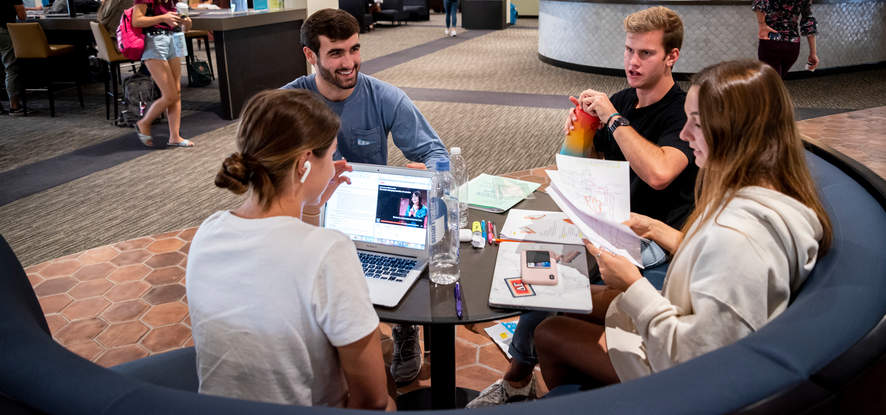Seaver's General Education Program

The general education program at Seaver College is designed to give students a broad knowledge base. Through the program, students explore areas outside their chosen concentrations and gain a well-rounded education. Seaver's general education requirement aims to expand students' knowledge, skills, and perspectives through coursework from a variety of disciplines. Beyond the personal academic growth which the general education program provides, this core set of common courses also serves as a shared experience that links all Seaver students to one another.
The general education requirement consists of 19 courses which total 63-64 units. Students will also complete a Junior Writing Portfolio and, in their majors, fulfill requirements of presentation skills, research methods, and writing intensive courses.
Explore our General Education Requirements and Optional GE Paths/Colloquia in the left navigation:
- American Experience (8 units)
- Christianity and Culture (9 units)
- English Composition (3 units)
- Fine Arts (2 units)
- First-Year Seminar (3 units)
- Human Institutions and Behavior (6-7 units)
- Laboratory Science (4 units)
- Language (4 units)
- Literature (4 units)
- Mathematics (3 units)
- Speech and Rhetoric (4 units)
- Western Culture (9 units)
- World Civilizations (4 units)
- Great Books Colloquium
- Social Action and Justice Colloquium
Alternate Pathways

We offer a pair of compelling alternatives for fulfilling Seaver Core requirements: The Great Books Colloquium and Social Action and Justice Colloquium. In both cases, students are able to satisfy five course requirements.
Program Learning Outcomes

Pepperdine University's General Education Program focuses on developing well-rounded students through learning outcomes in areas like critical thinking, communication, ethical reasoning, and global awareness. It includes courses in American history, Western culture, fine arts, mathematics, science, writing, and research. The program fosters intellectual growth, encouraging students to apply their knowledge to societal and cultural issues while promoting empathy and ethical decision-making.